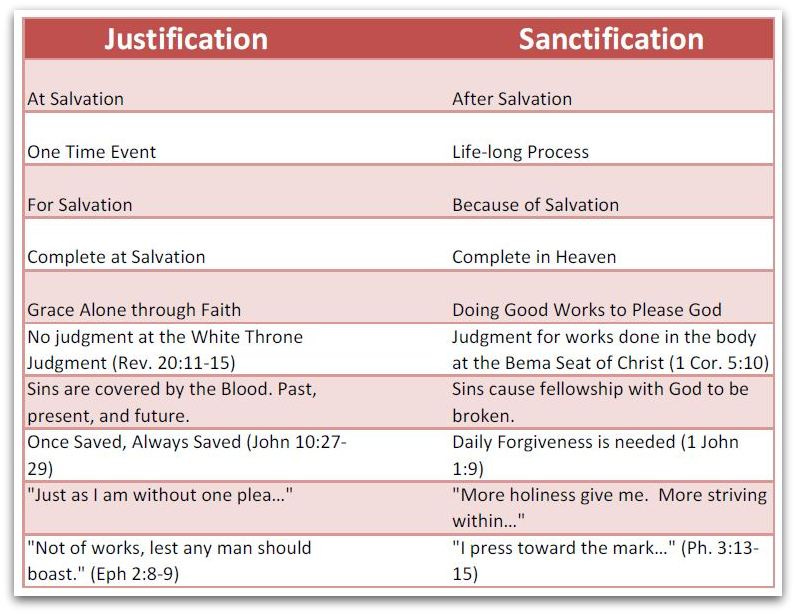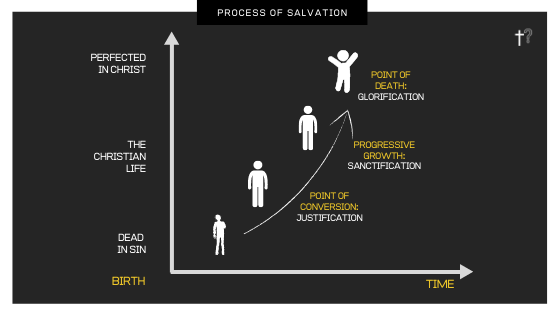In Part 4, we came to the topic of the biblical law and we outline the overall position of the Natsarim and we also made and effort to give justice to the “church” criticism by trying to outline it as accurately as we understand it. Then, in Part 5, we outlined the first 2 of out 7 main points for the Natsarim position and we now continue with the 3rd, 4th and 5th points. - The Hebrew roots movement and the lax attitude to Yahusha’s commandments.
The third point
To be sure that there are no misunderstandings, as a Natsarim, I denounce the charismatic or radical legalistic "Hebrew Roots Movement (HRM)".
Indeed it is nice to see a greater interest in the original faith in Hamashiach and in trying to honor YAHUAH and grant glory to our savior Yahushua Hamashaich, by trying to abide by the law as a born-again believer. But sadly, we see that this "movement" today has been invaded by secular and anti-”Christian” ideas and mostly contain all kinds of more or less fanatic "Legalists" and even semi-jewish groups like "Marconians” that proclaims that all must follow the law and never fail the slightest.
This is not the overall position of a true Natsarim.
Do not get me wrong. The Natsarim are very clearly drawing from these true Hebrew roots of the faith and so could very easily be grouped into this “Hebrew Roots” ecosystem. We indeeed promote a return to Hebrew origins rather than the humanistic Greek and occult post-modern ideas and framing for the New testament. But naturally, demon-infested people have done their best to destroy the true meaning of the title “Hebrew Roots”.
We know that none of the apostles were Greek but rather had Aramaic or Hebrew as their native tounges and we have proof that the New Testament was very likely first written in separate Hebrew scrolls and then “creatively” translated to fit the Koinic Greek language and humanistic philosophies.
So, why would we NOT go to the roots of the faith wherever and whenever possible and instead accept the precepts and interpretations made by all kinds of fallen of the “church”, men living by all kinds of Satanic world-views?
Clearly, the more militant "legalist" one becomes, the higher the risk of shifting away from focusing on repentance to the Father and on faith in the Hamashiach. And the new covenant actually makes the law volontary for honoring YAHUAH! And in this, we should recognize that no truly born-again believer would EVER want to disrespect the law since it came from YAHUAH.
An extreme "legalism" needs to be founded and come third to an even more extreme faith, which most of those driving a hardline legalism tend to lack. Just like the Pharisees. At some point their legal focus and mania has turned their “faith” into idolatry instead, because the trust in YAHUAH is replaced with mania and hate towards YAHUAH.
The Natsarim position on the spectrum of "legalism" is one of "having our priorities straight," where faith in the tri-part Yahuah (The Father and The Son) comes first and second and trying to fulfill laws, feasts, and sabbaths etc are a close third. This is a position where the law is formally recognized as valid and voluntary yet strongly recommended on top of repenting to the Father and submitting to and trusting in Yahusha. On top of that, the Natsarim recognizes the commandments of the Hamashiach, of which the two great ones are (in the words of Yahushua Himself) :
“Love YAHUAH your Alahim with all your heart and with all your soul and with all your mind." and "Love your neighbor as yourself."
(Mattai / Matthew 22:39)
Fourth point
Natsarim rejects the idea of lawlessness being OK. That a true believer must not at all give the law consideration. Satan never liked that law because it convicts the sinners. If believers were to teach the law to both other believers and to non-believers (for them to see their sin), they would all suddenly see Satan’s work happening in front of them and be inclined to repent to The Father and turn to Yahusha.
“Whoever commits sin also commits lawlessness, and sin is lawlessness.”
(1 Yohanan / John 3:4)
Anyone who think that Yahusha’s words are too harsh, should consider the following passage from Pauls letter to the Hebrews. It sure makes the hair on my neck stand a bit as it indicates clearly that Yahuah’s wrath is not to be taken lightly. And His wrath absolutely abides upon the ones who has rejected His Son and insulted the Holy Spirit.
“Anyone who rejected the law of Moses died without mercy on the testimony of two or three witnesses.
How much more severely do you think one deserves to be punished who has trampled on the Son of God, profaned the blood of the covenant that sanctified him, and insulted the Spirit of grace?…”
(Hebrews 10:28, BSB)
People usually think highly of their intellect. Yet they surrender all of that – and their pride – to anything Satan can affect, selling their minds and souls to material things and worldly power and comfort, instant gratification, or others' approval. And so only love and promote the things that Satan likes, without understadning that it carries an incredibly high price of having earned the wrath of Yahuah!
Through the law, they would instead live their faith (not just think or feel it) and be judging the tempters and minions of Satan (as well as other sinners in turn ) and thus become much harder to fool and turn away from the care of Yahusha. Remember that Yahushua kept referring to YAHUAH's word (instructions) when He rebuked Satan's temptations(?)
"… It is written: …." (Mattai / Matthew 4:4),
"… It is also written: …." (Mattai / Matthew 4:7) and
“… For it is written: …" (Mattai / Matthew 4:10).
As mentioned in previous arguments, the law (Torah) was also given as a spiritual mirror and litmus test with which we can evaluate ourselves, our faith, our morals, and judgments to benefit repentance and improvement. Sadly, a good share of professing “Christians” fail even to understand the challenge of that statement. Again, here is Paul, telling it like it is.
… I had not known sin, but by the law: for I had not known lust, except the law had said, Thou shalt not covet.
(Romans 7:7, KJV)
Those advocating against the law, side with those who do not like the idea of rules applying to them and their lifestyle. They talk about sin but avoid looking into the mirror of the law, avoiding to see their sin (the breaking of the law) they commit and are unwilling to humiliate themselves and repent and, therefore, are likely not really born-again believers (and certainly not a Natsarim).
He that saith, I know him, and keepeth not his commandments [i.e. the law], is a liar, and the truth is not in him. But whoso keepeth his word [the law and commandments], in him verily is the love of God perfected: hereby know we that we are in him.
(1 Yohanan / John 2:4-5, KJV)
Sure, there are many potential laws to consider and because some of them carry severe worst-case penalties, and some of them are technically impossible to fulfill today. But, some anti-law pundits claim this is "proof" that Natsarim stands for a false doctrine that must be forbidden (again!). Of course, this is a distraction from the reality of born-again believers being liberated from the grace from the curse of the law.
Some rightfully claim that the “doctrine of Christ” sets forth “the law of Christ” and reference (Galatians 6:2 and Ya'akov/James 1:25). Still, in this, they create a completely new (man-made!) definition of the law, other than the 7th “law” (of the Hamashiach) that Paul documented in (1 Corinthians 9:21). This is easily proven if we consider the context. Backing up to 1:21-22, we read
Therefore, get rid of all moral filth and the evil that is so prevalent and humbly accept the word planted in you, which can save you. Do not merely listen to the word, and so deceive yourselves. Do what it says.
(Ya'akov / James 1:21-22, BSB)
So, it is clear that the law that James was talking about is (again) exactly the same old covenant law, now written on the believer’s hearts - to be acted out.
… If you want to enter life, keep the commandments [The Law].
(Mattai / Matthew 19:17, BSB)
After the parable of the mirror, we then come to (James 1:25) above, and we understand that the perfect law, by inference, is that law written on our hearts. We also know this because we are directed to do it in both cases.
But whoever looks intently into the perfect law that gives freedom and continues in it—not forgetting what they have heard, but doing it—they will be blessed in what they do.
(Ya'akov / James 1:25, BSB
We also know this because the “law of Hamashiach” or “law of Christ”, as defined by Sha’ul / Paul in (1 Corinthians 9:21), means to be putting ourselves in the shoes of others to better love (submit to and serve) them and, also through this, make them understand.
And it is a universal fact that you cannot really love (serve) someone unless you use empathy and integrity. Paul states that he is in the law of YAHUAH and the “law of Hamashiach” at the same time - because they are the same - the law written upon the hearts of the born again believer. Yahusha never taught anything else.
From this, it is clear that neither Ya'akov / James nor Yahusha referred to his two Great commandments in (Mattai / Matthew 22:37-39) when saying “the law.” So, The idea that these two great commandments constitute the “law of Christ” as being something entirely different, is entirely man-made(!) to fit the narrative that the Mosaic law (the law of YAHUAH) being “abolished” (and thus not being written on our hearts either).
Yet liberty and perfection are found in our Hamashiach (Galatians 2:4) (Colossians 1:28) and the “law of Hamashiach” (1 Corinthians 9:21) (Galatians. 6:2) consequently, is then the perfect law of liberty and freedom.
Now the Lord is the Spirit, and where the Spirit of the Lord is, there is freedom.
(2 Corinthians 3:17)
We will be judged by the law of liberty (Ya'akov / James 1:25) (Ya'akov / James 2:12), and Yahusha said that the one who rejects Him and does not receive His words would be judged by the same words (Yohanan / John 12:48).
Therefore (again), the great commandments of Hamashiach and the “law of liberty”, written upon the hearts, are synonymous (but not the same!). One in our hearts and one as commandments from our Hamashiach, upon which with the law of YAHUAH and the prophets hang.
Another very quick and easy proof can be found in (Romans 13:8-10), where Paul ties all of this together plain as day. – Note once more that the law was summarized by Yahushua, NOT that the law was abolished or replaced by that summarizing statement.
Be indebted to no one, except to one another in love. For he who loves his neighbor has fulfilled the law. The commandments “Do not commit adultery,” “Do not murder,” “Do not steal,” “Do not covet,” [NOTE : THE “OLD” LAW!] and any other commandments, are summed up in this one decree: “Love your neighbor as yourself.”…
(Romans 13:8-10, BSB)
Natsarim firmly rejects the disrespect conveyed in the idea that we are "we are fulfilling all that Yahusha requires of us." if we "just" obey these two commandments. It is technically inaccurate, and the challenge is still the same as (and thereby not any easier than) following the ten commandments or the rest of YAHUAHA’s instructions (the law) (Galatians, 5:14). On the contrary, Yahushua raised the bar of least expectation on mankind, including even thought crimes as a sin.
But I say unto you, That whosoever looketh on a woman to lust after her hath committed adultery with her already in his heart.
(Mattai / Matthew 5:28, KJV)
Fifth point
Notice that Yahushua (Mattai / Matthew 22:40) says, "All the law and the Prophets hang on these two commandments." He did NOT say, "These two Great Commandments replace the law and the Prophets," but rather that the law exemplifies them. And this is exactly also outlines in (Romans 13:9) :
“For this, ‘You shall not commit adultery, You shall not murder, You shall not steal, You shall not covet,’ and if there is any other commandment, it is summed up in this saying, ‘You shall love your neighbor as yourself’. ”
In short; "Replace" or "abolish" are not synonyms for "hang on."
Nor are verses like "… because you are not under the law, but under grace." (Romans 6:14) valid since it merely highlights the fact the curse of the law is removed for the born-again.
Ultimately, the Natsarim firmly rejects this idea of "replacement theology" because there is no Biblical foundation for it but rather a significant risk of becoming lost in sin, as proven every second by the worldly society. This was the great mistake made by/in the reformation. “Sola Fide” sounded so good, but in the end, it was used to open the floodgates of sin in the “Church” and proclaimed “Christians” by rejecting the law and thus any absolute moral anchoring in the scripture.
Today, even clergy of the "church" are caught scoffing at the Bible (!) and claiming that "times are different,” people are "more sophisticated,” and therefore, the word of YAHUAH should be "interpreted" differently. – Hogwash!
Again, let us consider the 6th commandment, "You shall not murder.” - I have a hard time thinking that any reasonable follower of Yahushua Ha’mashiach (no matter what campfire we sleep at) would consider their faith an automatic license to murder another human being. But if the explicit law is considered “Old,” abolished and entirely replaced with the generic "Love your neighbor as yourself"? Is then murder acceptable (for whatever reason) as long as you claim to "love" the one you murder?
This is the dilemma that the law-haters will find themselves in: Anyone that agrees with murder being wrong in any circumstance, can be accused of being a "legalist" or "Judaizer.”
Anyone who claim that it is subjective and relative whether murder is wrong, seem to quickly change their minds if you tell them that you will happily shoot them in 5 minutes - because you have your own rules !
And Yahusha made it clear that all the laws and prophets are like leaves that "hang on" and draw from a branch - one core law of love and righteousness and keeping any of the commandments (i.e., the law) is a fruit of true faith that show this faith and love of YAHUAH:
Everyone who believes that Jesus is the Christ has been born of God , and everyone who loves the Father also loves those born of Him. By this we know that we love the children of God: when we love God and keep His commandments. For this is the love of God, that we keep His commandments.
And His commandments are not burdensome, because everyone born of God overcomes the world. And this is the victory that has overcome the world: our faith.
(1 Yohanan / John 5:1-4, BSB)
And as is clearly seen here, our ability to actually abide by the law comes from us being born-again in the Holy Spirit. It is He who prepares us for glory and brings us over the obstacles. Otherwise, what good is it to have faith but insist on rebelling against YAHUAH with our thinking and living? And how would it even be possible to live and think in any consistent way against one's own very essence?
And why then is the law not made void, abolished and removed from existence for the born-again? - The reason is that it is an expression of the nature of Yahuah and a shadow of His unfathomable righteousness and love.
Yahuah wants us to not “just” be “saved” and stay in some emotional fairy-land limbo after that. He wants us to become sanctified, holy and working the law in cooperation with the Holy Spirit within us. Producing a fruit of love (obedience and servitude) toward Him and the rest of mankind. And meanwhile, we also by this also become perfected as the personality of His beloved Son becomes manifested in our personalities and bodies. It is called the process of sanctification.
Romans 8:29-30 outlines this perfectly:
For those God foreknew, He also predestined to be conformed to the image of His Son, so that He would be the firstborn among many brothers. And those He predestined, He also called; those He called, He also justified; those He justified, He also glorified.
2 Tessalonians 2:13 details further:
But we ought always to thank God for you, brothers and sisters loved by the Lord, because God chose you as firstfruits to be saved through the sanctifying work of the Spirit and through belief in the truth.
Phillipians 1:6 also adds:
… being confident of this, that he who began a good work in you will carry it on to completion until the day of Christ Jesus.
SO, sanctification is the whole process of being after we are called, reborn in the Holy Spirit, until the day that Yahusha returns and we (dead or alive) are Glorified and “saved” by the transfiguration or “rapture”. And this process includes everything we say and do, every struggle, every failure, repentance new washing in the blood and, ultimately, every success.
And in this, the law still has a clear purpose, even as we are already formally sanctified and “on our way to Heaven”, because our position in the race toward informal/actual sanctity, will determine our standing in heaven and if we get to co-rule the Millennial Kingdom with Yahusha or not.
To him who overcomes I will grant to sit with Me on My throne, as I also overcame and sat down with My Father on His throne
(Revelation 3:21, BSB)
So then, whoever breaks one of the least of these commandments and teaches others to do likewise will be called least in the kingdom of heaven; but whoever practices and teaches them will be called great in the kingdom of heaven.
(Mattai / Matthew 5:19, BSB)
For everyone who has will be given more, and he will have an abundance. But the one who does not have, even what he has will be taken away from him. And throw that worthless servant into the outer darkness, where there will be weeping and gnashing of teeth.
(Mattai / Matthew 25:29-39, BSB)
This is what the Bema-seat of judgement will be about for the born-again, as Yahusha will judge our success after the transfiguration/rapture.
In the next part 7, we finish off the 6th and last of the main points of the Natsarim case regarding the law.
//
NOTE :
This article is draws for the same studies foundation as my book "Pandemonium", available om Amazon.










